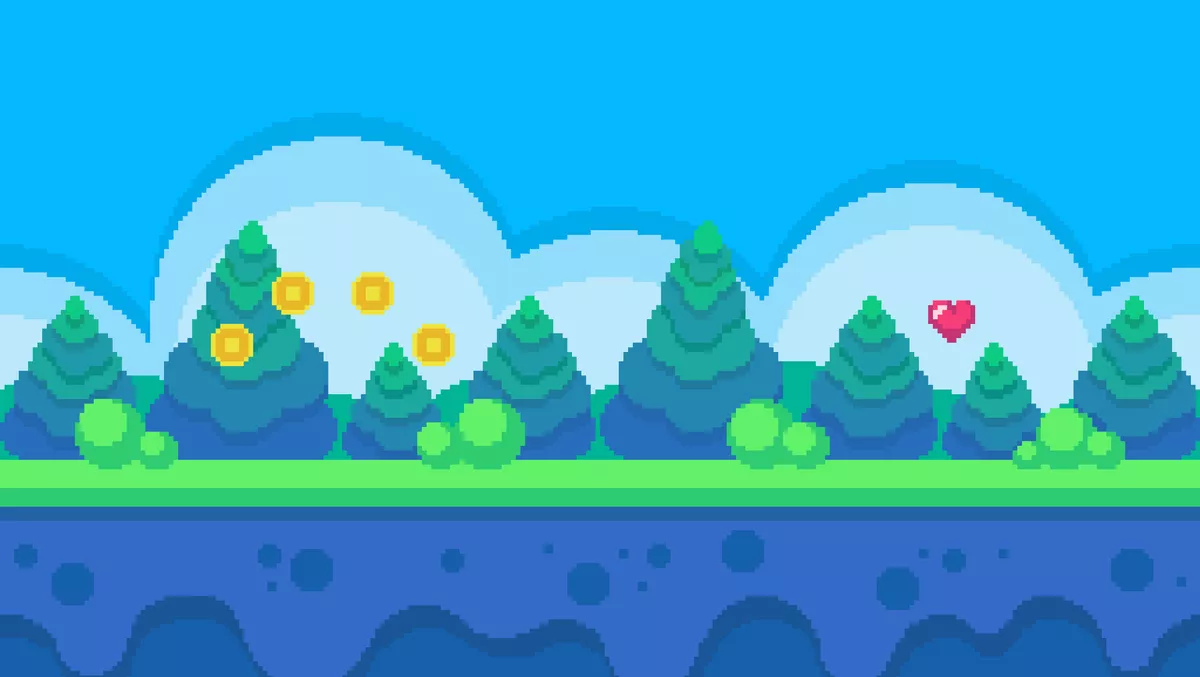
Geo AR Games: Get your kids off the couch and physically active outside with augmented reality (AR) games
If your kids are anything like mine, they love to play games on their handheld devices. So much so, that it can be difficult to get them outside, even on a fine day. Geo AR Games lets them do both at the same time, augmenting public open spaces into exciting "mixed reality" play areas with a combination of real-world, virtual, and social features.
Geo AR Games have two games out now: Sharks in the Park, and Magical Park. Sharks in the Park can be played in any open space in the world that's at least 60m x 60m. They're going to release a "world builder" next year which will enable kids to build their own games using a library of 3D models and animations. Think "Minecraft outdoors".
Magical Park works only in specific locations selected by a local council, and has a specific set of council-selected experiences.
The games have built-in safety features, for example content disappears as the player approaches the edge of the play area, and the player will see a big stop sign on the screen when they get within 15m of a road or other hazard.
The games deliver on the promise to get kids running around outside. Initial data show that the average game session is 30 minutes, and kids run an average of 500m to 2km during a session. Kids don't notice how much running they've done, as they're too immersed in the game. And the games are social – even though each kid has their own device, they are playing in real life with each other, talking to and yelling at each other.
Both games are attracting a high level of interest from local governments, who want to see increased use of public spaces, and provide healthy, fun activities on them. Councils have been trying to find a way to use technology as a hook to get families out-of-doors for years, and this is potentially the solution they've been looking for. Auckland and Wellington Councils have launched trials, and other councils are queued up. Initial feedback is very positive.
Councils also see value in the game for marketing their other services, so for example winning a game of Magical Park could potentially get you free entry into the nearby public swimming pool.
CEO Mel Langlotz has a career in visual effects and post production. She met CTO Amie Wolken when they were working together at Augview, a company that specialises in Geospatial Augmented Reality visualisation of infrastructure asset data. Amie has a unique combination of degrees in Law, Animal Biology/Psychology, and Computer Science. Amie quickly rose through the ranks at Augview from programmer to manager and ultimately director. The two had a vision of commercialising AR technology so that users could be fully immersed in an outdoor interactive experience, and be part of the storytelling. While infrastructure payed the bills, Mel and Amie knew that a far more exciting world lay ahead.
During this period, Mel was having huge difficulty in convincing her stepdaughter to get off the couch and play outside. And so the idea for Geo AR games was born.
In late 2015, Mel and Amie formed their new company, and immediately applied, and were accepted into Chile's women-only S-Factory pre-accelerator incubator, which gave them a USD 20,000 grant. During S-Factory, they applied for and were accepted into the women founder led Lightning Lab XX accelerator programme. Mel arrived back from Chile literally the same day that the XX programme began. And they've just heard that they've been accepted into Te Papa's Mahuki incubator programme, which begins in August. The team will be delivering outdoor AR exhibitions for Te Papa, which marks the beginning of developing a platform for AR cultural gaming experiences.
They're a top team in a new, fast-moving field. They've been working together in the geospatial AR environment for three years now, which is more experience than most others can claim – they're early adopters and first movers. They have complementary skills and really enjoy working with each other.
The game is based on the Unity platform, which provides the ability to deploy on both Android and iOS using a single code base. The game is fully contained in the download, so it doesn't need to use mobile data during play. There are a number of difficulties in making a good geospatial AR game. The really hard part is understanding and dealing with the nuances of GPS – there are lots of environmental and device variables that affect accuracy and smoothness. On the AR side, it's really hard to create content that looks realistic in the real world. It's challenging to integrate data from the device's sensors to keep the objects stable and look like they are part of that world rather than just overlaid. There's a constant tradeoff between stability and accuracy.
They're currently raising $300K to further develop the games and world builder, to sell to more local governments in New Zealand, and to begin exploring the overseas opportunities. They've already raised a successful NZD 10K Kickstarter, so you could say they're out of the starting blocks.
They're also looking to hire devs, with any combination of the following skills: C#, Unity, modular programming, game development, mobile app development (iOS, Android native plugins), AR or VR, computer vision and image processing, GNSS.
Contact the team if you're interested.
If you want to give it a go yourself, you can download Magical Park (iOS or Android) and head down to any of the following parks –
In Wellington:
Kainui Reserve, Hataitai
Adventure Park, Whitby
Avalon Park (cycle circuit), Lower Hutt
And in Auckland:
Domain – museum
Domain – duck pond
Victoria Park
Pukekohe Hill
Roberta Ave
Onepoto A
Onepoto B
Okahu Bay
Harbourview
Long Bay

